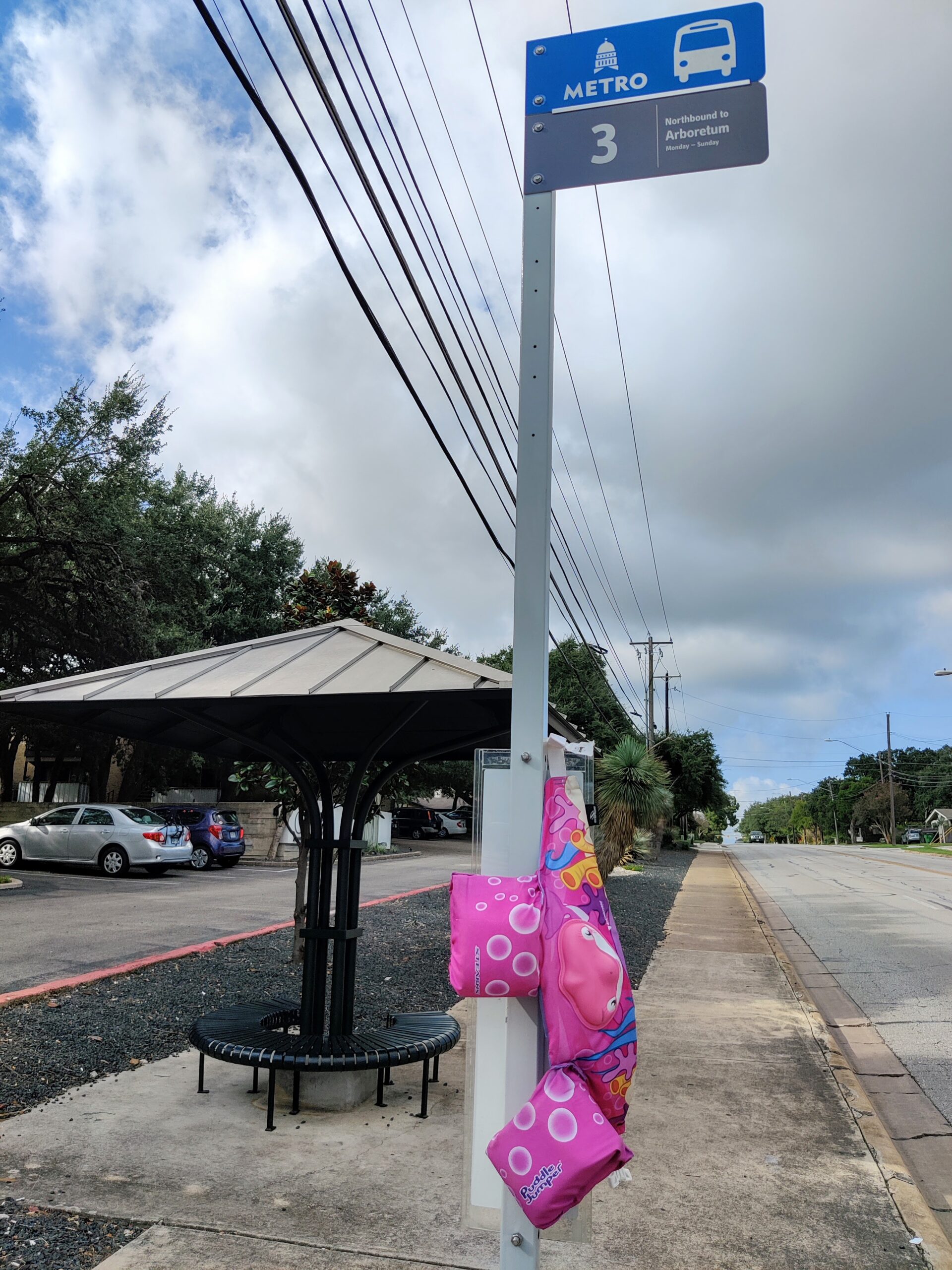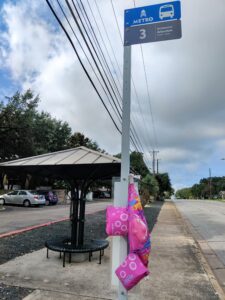Floaties on the Bus: How Survival Styles Work

I have a few favorite spiels that have come from on-the-spot attempts to explain complex concepts in simple and non-shaming ways using humor and metaphors.
“Floaties on the Bus” is my favorite to help my clients understand their unique survival style. While survival styles can be categorized as types, in real life it is usually a nice mix of styles with your own spin and a scattering of triggers like landmines that at first only the subconscious seems to be aware of.
In my practice, the survival style “features” I frequently see are self-blame, robust inner critics, perfectionism, and overriding one’s own boundaries. This gets wrapped right around BFRBs such as Trichotillomania and Skin Picking, or any numbing or soothing behavior really. De-selfing, pleasing, masking, over achieving: more survival styles than fashion styles are available.
As sessions go on and that dilemma of knowing better but not doing better develops, self sabotage is one psychobabble version of this, my clients tend to cruelly criticize themselves. “Why can’t I just…?!?!” “You dumb B%^**$ you F$^*^&$* again!” Those are good clues a survival style is at work.
So here is Floaties on the Bus:
Imagine you as a child learning to swim. Except in this scenario you are really not getting it and truly need your floaties to stay safe in the water. Maybe the water was treacherous, maybe you didn’t have appropriate or patient adults helping you learn to swim. Maybe the adults are oddly missing and on your own you just are not going to survive teaching yourself to swim in that body of water. So those floaties help you survive the water. Those floaties make sense. Those floaties are the best you could manage to cope with being in water. You feel safe with them on. You get pretty good at navigating the water with floaties. Floaties become very familiar.
Well, fast forward 30 or so years. You are in a new city, very different from your hometown. To get around you must learn to navigate a confusing bus system. The schedule is outdated and inaccurate. The directions are incomplete or even in other languages. The crowds seem to intuitively just get it, going fast and friendly but not exactly able to hold your hand through it for more than a brief piece of advice.

So, to help you feel safe navigating this overwhelming, new environment, you wear your floaties. On the bus. They worked so well in the water back then! Floaties help even when you go back and visit that water. So, why not here? Oh yeah, because you get some weird looks when you are the one wearing floaties on a city bus. This is not a beach town by the way.
That is How Survival Styles Work.
Whatever your circumstances were as a baby, child, and teen, odds are you came across something that cued you to develop a method of coping and managing people, stress, self worth, learning curves, grief, hurt…you know, LIFE. The human condition in the best cases. Possibly periods of neglect or abuse. Or just unfortunate, chaotic, or overlooked times that as a tiny human you had to figure it out.
This is not a bad thing. This is how we survive. Look how alive you are right now! It worked. Go gentle with yourself. When something works so well for us, our reptile brain doesn’t let go of lightly.
The thing is, as an adult, you have more options that were not available as a kid. No one has to take away your floaties. I doubt they could if they wanted too. They are yours. And keep them tucked safely should the need arise. But when navigating a bus system, maybe you can pause and then choose other methods from an array of adult learned strategies. Newer, more applicable, and aligned with your values as a whole, grown up person. An adult body does not have survival on the line in relationships in the same way a child does.
Survival Strategies are Not Pathology.
The floaties are not something wrong with you. And you may choose to explore new ways of navigating life, that’s ok too.
